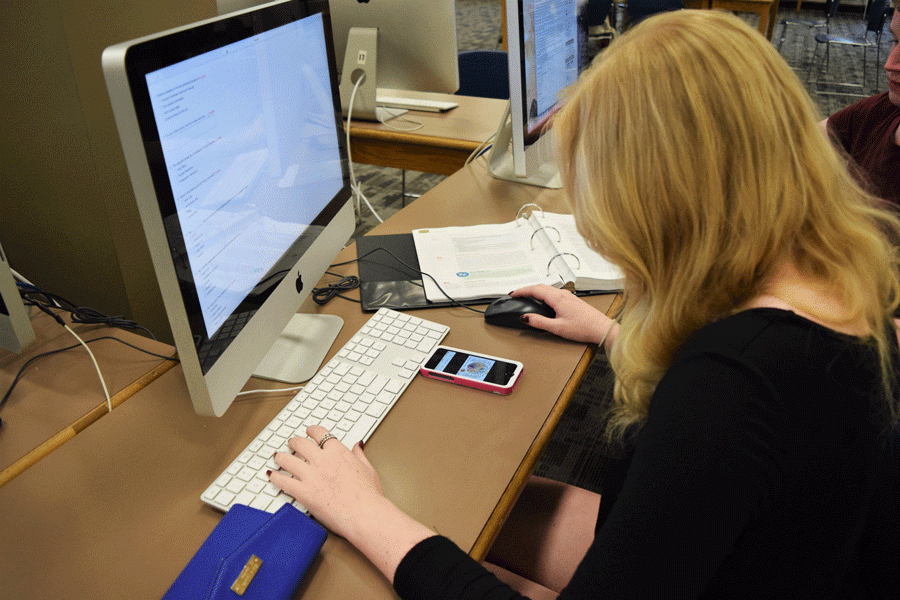By Jack Christianson, For The Miami Student
As more professors turn to electronic assignments and exams to assess their students, through platforms like Niihka and Canvas, the number of students cheating, as well as the number caught, is rising.
Brenda Quaye, coordinator for academic integrity, said she sees increasing cases of academic dishonesty each year.
Although the final report for the last academic year is not yet complete due to pending spring cases, Quaye said the department saw around 315 cases last year, on and offline. This is a significant rise from the approximate 250 cases she saw the year prior.
"Any suspected academic dishonesty needs to be reported to department chairs," Quaye said.
She believes there is more cheating occurring than is reported. However, being at her third institution with this profession, Quaye said the amount of reported cheating at Miami is similar to many other mid-sized universities.
"Online assessments provide expanded avenues for academic dishonesty as well as for faculty to detect academic dishonesty and make assignments harder to cheat on," Quaye said.
She also noted online exams must be taken in sequential order and often have time limits to deter student cheating and collaboration.
When it comes to online homework assignments, Quaye said many people assume everything is fair game if the assignment is not completed in class.
Quaye said she hopes faculty will be even more diligent to combat dishonesty in the future by putting more rules in their syllabi.
Scott Millen, professor of microbiology, takes a different approach to his Canvas quizzes. His are intentionally open-note, open-book and students have three attempts at each question.
The purpose behind this, he said, is to force students to look up the course material. He purposely phrases questions in a way that cannot be easily searched online.
First-year Coburn Gillies said he would not stop someone if he witnessed them cheating, saying it's none of his business.
Gillies said he sees students cheating on a daily basis.
"When it comes to online assignments, most students cheat," Gillies said.
While Canvas already employs the plagiarism analysis service of turnitin.com, this only monitors open-ended responses.
For multiple-choice assessments, the university is currently piloting remote proctoring products, which monitor students via video as they take online exams.
Gillies said he would be much more cognizant if Miami were to increase measures to monitor student dishonesty.
Quaye believes by cheating, students miss information and essential building blocks for both future classes and for life.
Gillies agreed, saying academic dishonesty cheats a student out of the opportunity to learn.
"If someone is determined to cheat, they will find a way. As professors, we accept that, and some students will get away with it," Millen said. "Our philosophy as teachers is that [cheating] will work for now in a class, [but] ultimately it's going to lead them to fail in life."

